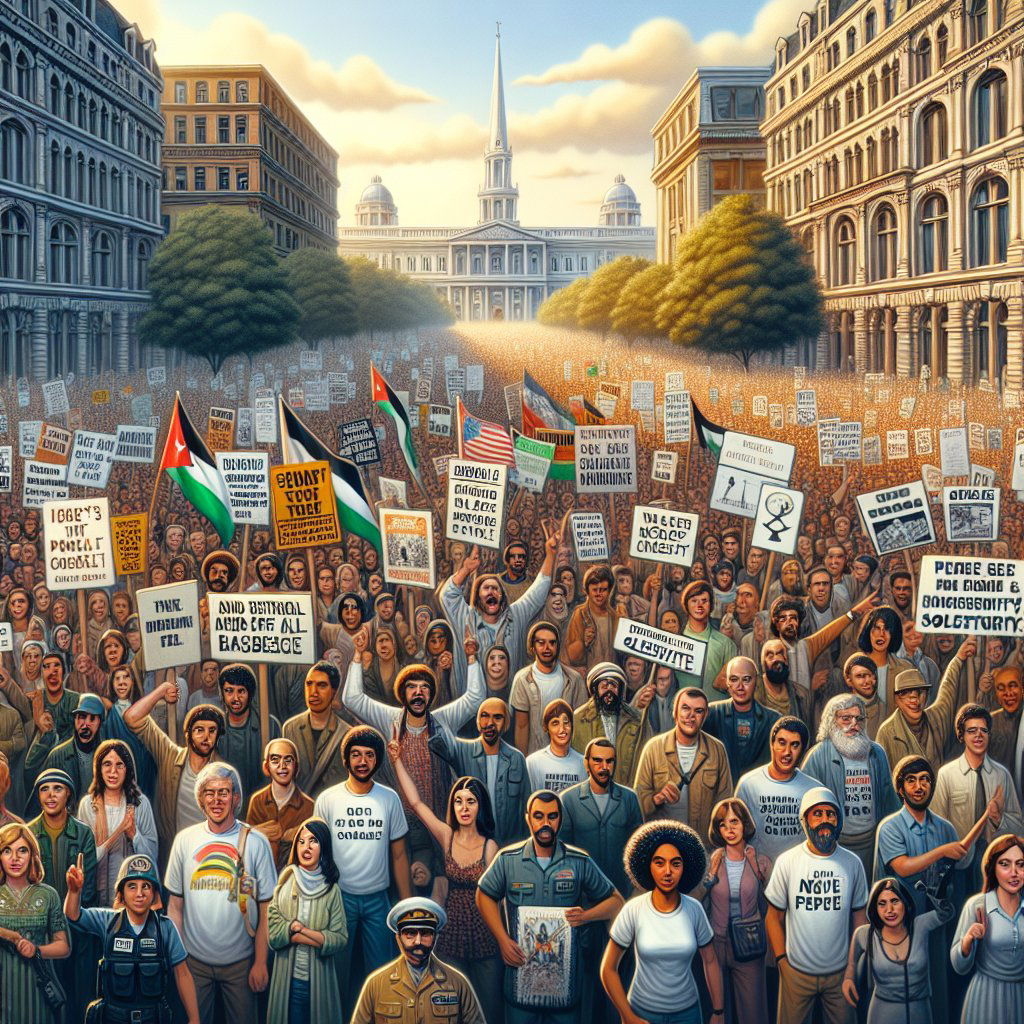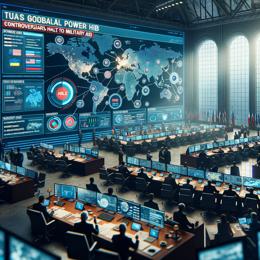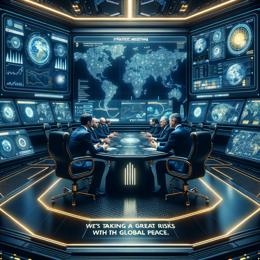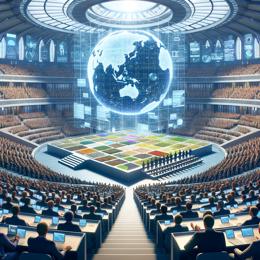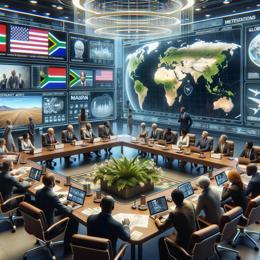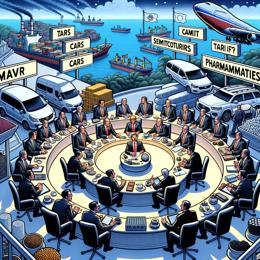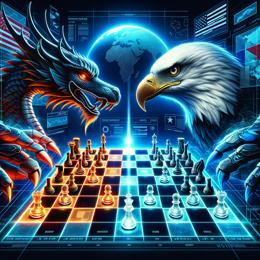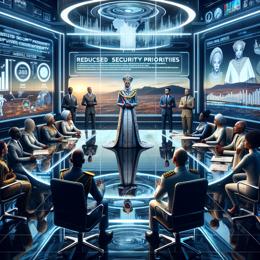Image: AI generated for illustration purposes
Solidarity March: Johannesburg Citizens Rally for Peace in Gaza
In a resounding call for peace and solidarity, the streets of Johannesburg were a sea of impassioned voices on Wednesday as hundreds gathered to support the Palestinian cause and demand an end to the conflict in Gaza. The occasion was the International Day of Solidarity with the Palestinian People, and South Africa's robust response underscored its long-standing stance against oppression and inequality—echoing the country's own historical struggles.
Members from a diverse mix of political groups, including the ruling African National Congress (ANC) and the Economic Freedom Fighters (EFF), united on this day, bridging ideological divides to stand together against the ongoing violence in Gaza. Their unity was displayed prominently as they crossed the Nelson Mandela Bridge, a symbolic site resonating with South Africa's own journey towards freedom and justice.
Significantly, many of the protestors, including President Cyril Ramaphosa, draw parallels between Israel's actions in Gaza and the West Bank and the apartheid regime that once plagued South Africa. This shared historical context has mobilized South Africans to lend their voice to another nation's plight—a gesture of international camaraderie.
At the forefront of the march, anti-apartheid icon Ronnie Kasrils vocally endorsed measures to diplomatically isolate Israel, suggesting a global boycott as a peaceful form of protest. His sentiments reflected a wider call to action, aspiring to impact Israel economically and politically until a resolution is reached.
The ANC's Secretary-General Fikile Mbalula spoke with fervency, condemning Israeli Prime Minister Benjamin Netanyahu's policies, which have been accused of resulting in civilian casualties. Mbalula called for a tangible display of support: the closure of the Israeli embassy in South Africa.
The parliamentary landscape in South Africa echoed these sentiments last week, as a majority of lawmakers voted in favor of a motion to sever diplomatic ties with Israel, a move that was followed by the recall of Israel's ambassador to South Africa. Accusations leveled at Israel range from genocide to crimes against humanity, with the latter being referred to the International Criminal Court for investigation.
This show of support isn't just political posturing; it is deeply personal for many South Africans. Protester Mohamed Shaahid Mathee encapsulated this sentiment, drawing a parallel to the global support South Africa once received during the apartheid era. He reminded those present of their "human duty" and the "imperative to support the cry of the oppressed people in the world."
The march in Johannesburg is part of a larger tapestry of international solidarity activities and sat as a reminder that, despite geographical distances, the quest for human dignity and peace is universally shared and relentless.
#GOOGLE_AD
